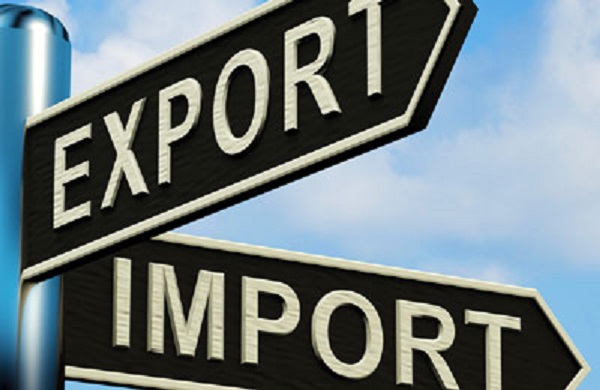
ZIMBABWE’S trade deficit has risen by 34% to $1,26 billion for the period February to June 2018, an indication that efforts by government to correct trade imbalances were not bearing any fruits, latest trade data shows.
BY MTHANDAZO NYONI
During the same period last year, the trade deficit was $937,81 million. Latest information released by Zimbabwe National Statistics Agency (ZimStat) showed that between February and June 2018, the country imported goods and services worth $2,87 billion against exports of $1,62 billion, which remain heavily skewed towards consumptive products.
Again, the country’s imports were $2,25 billion against exports of $1,31 billion.
Most of the imports in the period under review were consumptive products such as maize, rice, bottled water, sugar, soap, mobile phone handsets, electronics, vehicle spares, vehicles and generators.
In the same period, Zimbabwe imported goods worth $1,22 billion from South Africa — the country’s largest trading partner — against $763,94 million exports. Other notable imports came from Singapore at $626,88 million against Zimbabwe’s paltry exports worth $2 900.
Zimbabwe has struggled to correct trade imbalances due to low production. Trade figures for January 2018 were not provided as the Zimbabwe Revenue Authority, the source of merchandise trade data, failed to provide them.
In an opinion piece early this month in this paper, doctoral fellow in economics at North West University, David Mhlanga, said Zimbabwe’s trade deficit was due to poor production.
- Chamisa under fire over US$120K donation
- Mavhunga puts DeMbare into Chibuku quarterfinals
- Pension funds bet on Cabora Bassa oilfields
- Councils defy govt fire tender directive
Keep Reading
“The country, on many occasions, is forced to borrow from foreign states and locally to pay for the imports.
Therefore, because Zimbabwe has a trade deficit, this will result in worsening current account deficit in the balance of payments, meaning imports will be more than the exports. People import various goods so as to supplement the shortage as the country is not producing all the goods needed by its citizens,” he said.
“For instance, people import flour and fuel because of shortage of these products on the market. This in turn will worsen the trade deficit. The other reason is that some domestic companies manufacture in foreign countries. They export raw materials to foreign countries’ factories, these exports of raw products are counted as exports. When the finished goods are shipped back home, they are counted as imports. This is worsening the trade deficit in Zimbabwe.”
ZimTrade, the country’s export promotion body, has cited export permits requirements as one of the major impediments for export business. Before exporting, government requires companies to first apply for permits, a situation that is delaying businesses from delivering their produce to customers outside the country.
In a bid to encourage companies to export, the government in 2016 introduced a 5% export incentive bonus scheme. President Emmerson Mnangagwa has urged players in different sectors to stimulate productivity in order to enhance exports.











